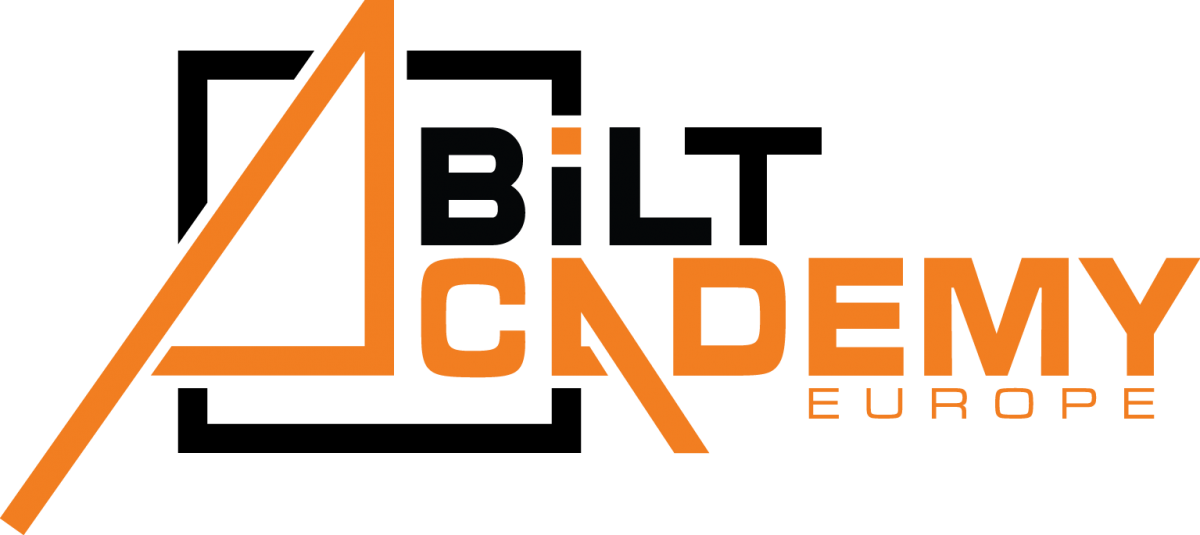We are more than happy and proud to announce that tickets for the BILT ACADEMY SUMMIT 2019 are sold out and registrations are closed. We are delighted about this successful outcome and looking so much forward to welcome more than 100 students from all over Europe.
Category: Summit 2019
Mentor Announcement #7 & #8 Summit 2019
Dear all,
I am very excited to announce our mentors for the workshop Collaboration with IFC.
Drum roll for…
Diane Ramage & Andy Waring
Diane Ramage

Background
I have 30 years construction experience gained within construction across a range of projects and sectors and as BIM Manager at Keppie Design I develop our standards and procedures to align with those of the UK, and now the international, standards, providing guidance to staff and management while ensuring over 70 Revit users have continuing software and procedure skills development.
I’ve been using BIM software and methods since 2004 and have applied them on Architectural projects ranging from small residential units to multi-million commercial and healthcare schemes, working collaboratively with all other project consultants and clients. I have been a passionate advocate of BIM collaboration throughout my career and relish the fact that every day still teaches me something new.
I’m also part of the Keppie team who develop partnerships with further education establishments since I have also previously lectured in Architectural Technology and keep in contact with the education sector, where I’ve collaborated with lecturers in course development. I’ve trained others in implementation of BIM methods, technology and software since 2004 and as a committee member of the Glasgow Revit User Group I’m a firm believer that spreading and sharing knowledge will help the wider construction industry and ultimately be beneficial to the whole industry.
Her Motivation
I take great delight in watching students engage with the subject matter and progress their understanding and skills and I believe my experience can help students put the context of their learning experience into practical use within the “real” world of the construction industry. I’m excited to be taking part in BILT Academy as a mentor because it’ll be an opportunity to share experiential knowledge and help students transition from education to the workplace with confidence in their skills.
Andy Waring

Background
I graduated from the Glasgow School of Art in 2013 and became an architect in early 2017 completing various projects across the Sports, Education and Justice sectors with a combined project value of £70M in that time. I became the BIM manager of Holmes Miller Architects in early 2018. Holmes Miller has 3 offices, in Glasgow, London and Guangzhou with just under 100 staff. I lead the development and implementation of in house standards and content aligned to international specification and provide extensive training around various standards and tools both in house and externally. I also handle most ICT related matters and specialize in research and development projects ranging from the development of fully automated model validation procedures and various tools to aid parametric design and production. I am also developing integrations between finance software and various analysis tools for the SMT. Outside of Holmes Miller, I am a committee member for the Glasgow Revit User Group (GRUG) and have previously been the chair on various industry summits.
His Motivation
With concepts such as virtual digital construction and BIM becoming mainstream, we need intelligent and motivated students with the right knowledge to be productive and push the industry into the 21st century. Industry collaboration with education is vital to ensure that students are aware and prepared to join us in dragging the construction sector into the 21st century. I am delighted to be offered to opportunity to be a BILT Academy mentor to help guide the innovators of the future.
Key Learning Objectives
01- Learn how to collaborate with IFC files within Revit and to export an IFC from Revit
- Open an IFC using Revit and save as a Revit file
- Link a native IFC into a Revit model
- Export a Revit model to IFC
- Export formats
- Location of Revit IFC Export mapping table
- Simplified Export process
- Overview of IFC advanced export settings
02- Learn about the BIM interoperability suite for classification of model elements, and to prepare your model for COBie data
- Where to access the suite and an overview of the elements
- Classification manager overview
- COBie overview
- Workflow for COBie population in Revit
03- Learn about Revit Model Checker and how to customise it to suit standards
- Overview of Revit Model Checker
- Why /when use model checker
- Example of validation process using model checker
Short Q&A
1)Where do you see the importance of collaborating with IFC? Why this kind of standards are important for the AEC industry?
Working within Architecture I’m not the greatest advocate of the IFC format, I do think it’s very important that there is a method of interoperability through an open format but I see it more as a necessary complication to my job, since not everyone works across the same software formats. Industry software providers have resisted developing their platforms on a completely open format but the need for IFC import/export adds further time and effort onto projects where fee margins (in the UK) are very tight.
Additionally IFC still is not 100% accurate, and that margin of inaccuracy leave us at risk of being subject to legal disputes, hence it’s important that we adopt a workflow and method to interact with the IFC format, and we always ensure that any output in IFC format is clearly identified as being subject to potential inaccuracy or misinterpretation by the software used to read it as is the case with all exchange formats without a native editing tool
2)Could you briefly explain the difference between Open BIM and Closed BIM approaches? What is the need and role of IFC for Open BIM approach?
Closed BIM relies on every project participant using the same software, being version specific and requires no interoperability between different software formats. This rarely happens, since CAD, Excel, Navisworks, images would have different formats but are regularly incorporated to inform the project design.
Completely open BIM would encompass integration of all formats, in particular IFC and COBie, and this happens on most design projects, but it can be a difficult, time involved process and unless participants are familiar with good workflows and processes and have additional interoperability tools to handle the tasks involved these integrations can cause expensive delays to project progress.
An ideal open BIM world would see all software platforms linking together seamlessly using the native software platform formats, but this dream is unlikely to become reality, hence the need for tools to use IFC format and interoperability tools.
3)What is the most important message you want to give to the students after attending your workshop?
Always know the limitations of the deliverables you are signing up for, find out if they are fit for purpose and make your clients aware of this from the outset.
We’ve looked at some of the collaboration tools we use to provide our design services. They are not the essence of our design services, and regardless of how much automation and efficiency these tools provide, never underestimate the need for your design individuality, your thought and intellect, your expertise to inform any construction project. They say a bad worker blames his tools, instead be the expert worker who simply uses the tools to enhance inspired design.
